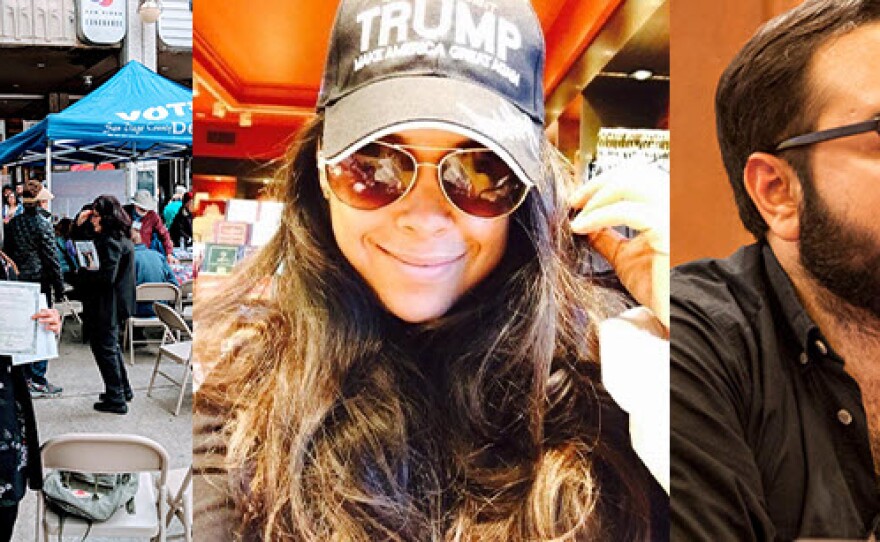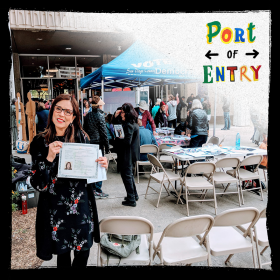Olivia Aguirre Cortes moved to the U.S. with a work visa in 2006. As a visa holder, she’s required to pay taxes, but she wasn't allowed to participate in elections.
Aguirre follows politics and has cared deeply about voting since she cast her first vote in Mexico at the age of 18. So for her, not being able to participate in the elections of the country she called home was frustrating.
“I remember, during election time, I’d ask people, ‘Did you vote?” she said. “And some people would say no, and I’d almost feel offended. I was always like, ‘Please, go vote. I wish I could, but I can’t yet.’”
The process took over a decade, but last year Aguirre did finally become a full-fledged citizen of the U.S.
“I’m so excited,” she said. “This will be the first time I can vote and I cannot wait.”
Aguirre takes voting very seriously. And as a binational citizen of both the U.S. and Mexico, she now has the right to vote in elections on both sides of the border. And she does vote in both countries — sometimes she votes in Mexican elections by mail, but some years she'll drive across the border to Tijuana to cast her vote. She says she participates in both countries’ politics because some policies can spill over from one country and impact the other.
“So of course I’m going to vote,” she said. “Some people think why bother to vote; they're going to do what they're going to do.” But no, it does count. And voting is a responsibility. It is a duty, not only a right.”
In a new episode of KPBS’ border podcast “Port of Entry,” host Alan Lilienthal talks to Aguirre and two other binational citizens about what they’re doing with their votes this year, in an election where the border and immigration policies are front and center.
You may think that all dual citizens fall on the same side of the political fence when it comes to how they vote, but actually, they’re all surprisingly different.








